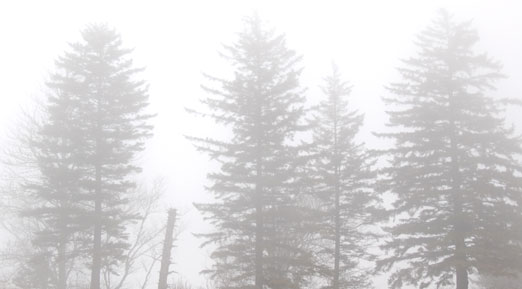By Glynn Wilson –
Climate change due to human induced global warming from the burning of fossil fuels makes North American forests more vulnerable to insects and disease, according to a new study published by a team of researchers from Dartmouth University in the journal Ecological Monographs.
After reviewing about 500 scientific studies dating back to the 1950s to produce what they called “the most comprehensive review of the affect of climate change on the forests” that cover about one-third of North America — as part of the National Climate Assessment — the researchers found 27 insects and 22 diseases that are “notable agents of disturbance.”
Some areas devastated by insects or disease may be restored because of continued warming, with insects dying off because temperatures are too high for them, said Aaron S. Weed, a Dartmouth postdoctoral researcher in ecology. But the study found that warming allows insects to flourish and exaggerates their natural role in keeping forests healthy. Bark beetles, for example, are doing more damage than expected.
“It is now clear that the large extent and expanding distribution of recent outbreaks have been permitted or exacerbated by increasing temperatures during the last decades,” the paper concludes. “Mountain and southern pine beetles are attacking hosts farther north and at higher elevations than historic norms,” because warmer winters are allowing insects to survive, the study found.
In addition to insects and disease, droughts and fires also have been linked to climate change, which also have a negative impact on forests.
“These forests are of incalculable value to human society in terms of harvested resources and ecosystem services and are sensitive to disturbance regimes,” the paper concludes. “Epidemics of forest insects and diseases are the dominant sources of disturbance to North American forests.”
The recent research affirms the importance of milder winters, warmer growing seasons and changes in moisture availability to the occurrence of biotic disturbances.
“The distribution and abundance of forest insects and pathogens respond rapidly to climatic variation due to their physiological sensitivity to temperature, high mobility, short generation times, and high reproductive potential,” according to the research paper. “Additionally, climate affects tree defenses, tree tolerance, and community interactions involving enemies, competitors and mutualists of insects and diseases.”
Clear examples are offered by recent epidemics of spruce beetles in Alaska, mountain pine beetle in high-elevation five-needle pine forests of the Rocky Mountains, and southern pine beetle in the New Jersey Pinelands.
“Changes in biotic disturbances have broad consequences for forest ecosystems and the services they provide to society,” the researchers say.
Climatic effects on forest insect and disease outbreaks may foster further changes in climate by influencing the exchange of carbon, water and energy between forests and the atmosphere.
“Predictions from the first U.S. National Climate Assessment of expansions in forest disturbances from climate change have been upheld,” the scientists conclude, “in some cases more rapidly and dramatically than expected.”














